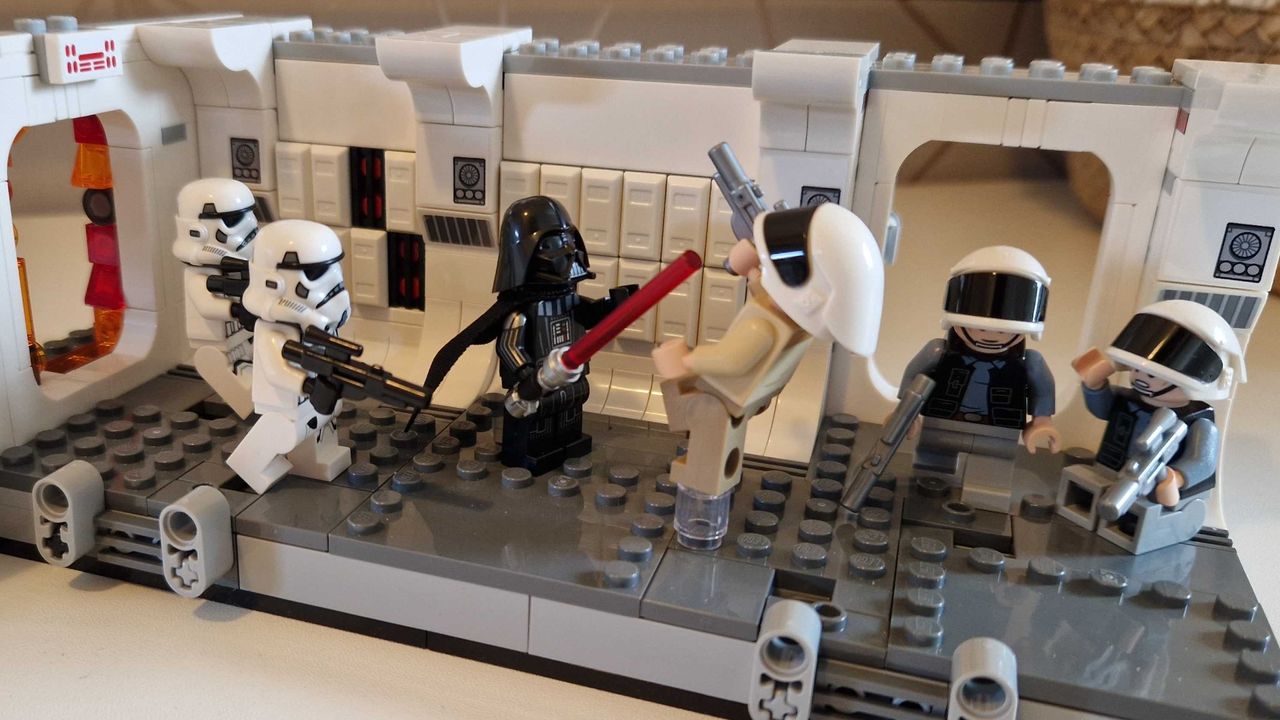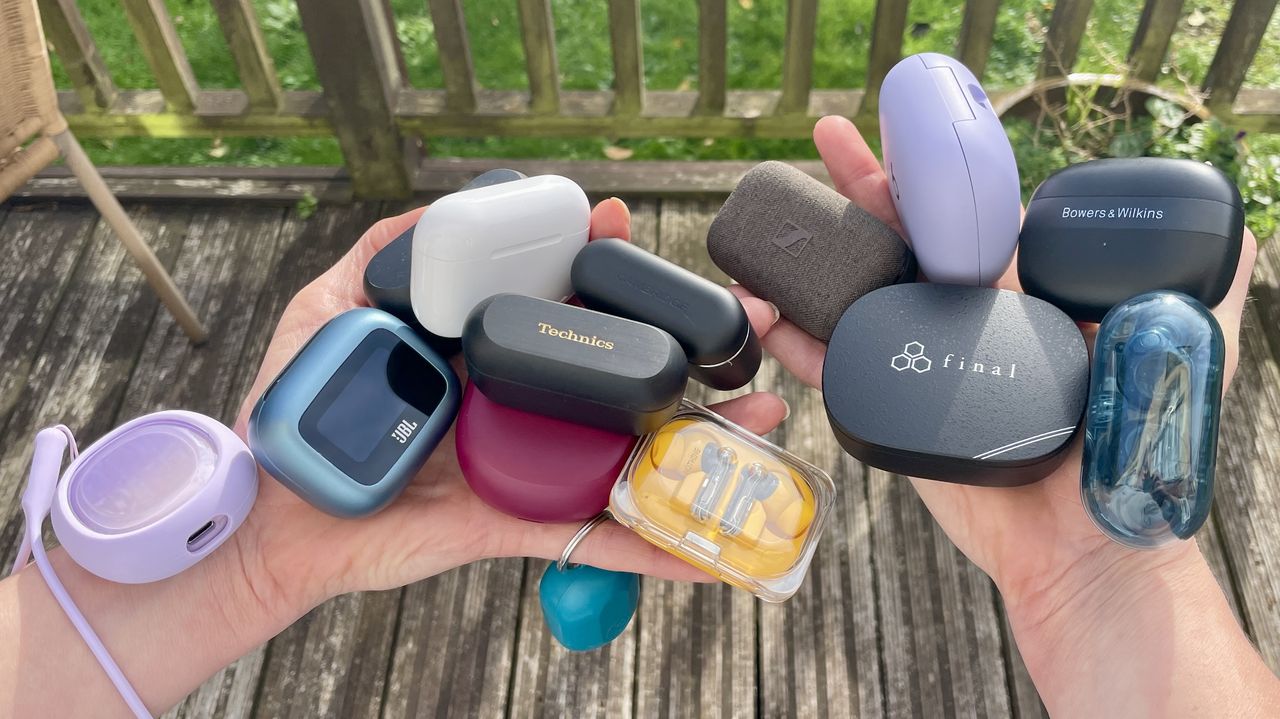 ‘That night changed everything.’ (Picture: Ruby Jones)
‘That night changed everything.’ (Picture: Ruby Jones)
It was a humid June evening in 2024 as Ruby Jones, 33, climbed into bed.
Her husband, Rob, 37, was out playing football — as he did three times a week — while their then 8-year-old son, Albert, was already asleep.
After a busy Monday, packed with work and school, the mum-of-one was getting an early night.
‘We’d spent the weekend getting a few bits sorted for our family holiday to the USA,’ Ruby tells Metro.
‘It was very hot, and I put my eye mask on and earplugs in, and fell asleep.’
But that night, Ruby woke up to a loud thump. When she turned the light on, she saw her husband lying on the floor, his eyes wide open.
‘His chest wasn’t moving up and down, and I realised he wasn’t breathing,’ says Ruby. ‘That night changed everything.’
 The happy family of three (Picture: Ruby Jones)
The happy family of three (Picture: Ruby Jones)
‘It was the darkest moment of my life’
‘I basically moved in with Rob after our first date,’ laughs Ruby, from Nottingham, recalling the moment the pair met on Match, back in 2012.
‘I was still a university,’ she remembers. ‘But I’ve always been a bit more mature, and when you know you know.’
Just two years later, they were married, with baby Albert arriving in 2015. ‘I’d always wanted to have children,’ says Ruby. ‘He was premature so after his birth, we raised a lot of money for charity.
‘Rob did the Great North Run, as well as a sponsored walk from Nottingham to Sheffield.’
 They’ve been together for more than 10 years (Picture: Ruby Jones)
They’ve been together for more than 10 years (Picture: Ruby Jones)
Active Rob was a non-smoker, and didn’t drink alcohol — his health wasn’t a cause for concern. So that night in June, Ruby’s first thought was that her husband had tripped over.
‘I thought maybe he’d got back late from football, and had lost his footing in the dark,’ she says. ‘Then I wondered if he was having some kind of seizure, but when I realised his chest wasn’t moving up and down, I knew I was going to have to do CPR.’
In a twist of fate, Ruby had done a CPR training course at work just a month earlier. ‘I ran to the next room to grab my phone, called 999, and started chest compressions,’ she says.
As Ruby frantically pushed down on her husband’s chest, tears streaming down her face, she thought of her son in the next room.
‘I prayed that he wouldn’t wake up,’ says Ruby. ‘All I could think was that Albert was too young to see his dad like this. That the image of his dad on the floor would stay with him forever.
‘I was sobbing. It was the darkest, most terrifying moment of my life.’
For 18 long minutes, Ruby kept going. ‘It felt like forever,’ she says. ‘It was exhausting, but obviously I was never going to stop. I needed him to live. What else was I going to do?’
Finally, after almost 20 minutes, the paramedics arrived. ‘There were three ambulances outside and suddenly so many people in the bedroom,’ says Ruby.
 Ruby was terrified of son, Albert, walking up (Picture: Ruby Jones)
Ruby was terrified of son, Albert, walking up (Picture: Ruby Jones)
Reports from the first paramedics on the scene detailed Rob as having no pulse. ‘A defibrillator brought him back to life,’ says Ruby. ‘He died for 18 minutes.’
Rob was intubated and taken to hospital, with Ruby told to follow behind.
‘I remember getting changed out of my pjs, and giving myself a few minutes to cry. Then I knew I had to get back into mum mode.
‘I woke Albert up and told him that Daddy wasn’t very well. On the drive to the hospital I couldn’t look at him in the eye, I didn’t want him to see how upset I was.’
‘Hi babe, apparently I’ve had a cardiac arrest’
Arriving at A&E, nurses looked after Albert, while Ruby went to visit her husband.
‘The sight of Rob at hospital made me feel sick,’ says Ruby. ‘They were trying to get a line into him, and he had tape over his eyes. The look on the doctors face made it pretty obvious that this wasn’t good.’
Rob was placed into an induced coma in intensive care. ‘All I could do was wait,’ says Ruby.
That afternoon, along with Rob’s family, doctors delivered some shocking news. ‘They bundled us all into a little room, and said they’d tried to bring him round, but he’d had a fit.
 Rob was placed in an induced coma (Picture: Ruby Jones)
Rob was placed in an induced coma (Picture: Ruby Jones)
‘Then they said: “We’re quite worried there may not be any brain activity.” I just remember thinking, “What am I going to do?”‘
Ruby says that the days that followed were surreal. ‘I just tried to cope. Sometimes I’d be crying, other times I’d make jokes like “If he wanted a day off, he could have just asked.”
‘I’d text him every day, knowing I wouldn’t get a reply. I told him how much I loved him, how brilliant I thought he was and how I didn’t want to be without him.’
It was around four days after his cardiac arrest that Rob was finally brought out of his coma.
‘I got a call saying he wanted to talk to me,’ says Ruby. ‘They put him on the phone and he said: “Hi babe, apparently I’ve had a cardiac arrest.”‘
 Ruby feared Rob could have permanent brain damage (Picture: Ruby Jones)
Ruby feared Rob could have permanent brain damage (Picture: Ruby Jones)
From that day on, Rob embarked on a journey to recovery. Thankfully, scans showed there’d been no permanent brain damage.
‘His memory was terrible,’ says Ruby. ‘I was repeating myself all the time, and I’d buy him sudoku to try and help.’
Finally, in July 2024, Rob was discharged from hospital. He came home with a small defibrillator implanted into his chest — it means that if Rob’s heart stops again, it will send electrical pulses to make it beat normally again.
No warning, no symptoms
‘We hoped what happened would just be a freak accident,’ says Ruby. ‘But that December, Rob had been playing football, and woke up the next morning with a tight chest.
‘He later got a call from hospital, confirming that his heart had stopped in the night — and the device in his chest had provided a shock to his heart.’
 Now, they run The Idiopath, teaching others about CPR training (Picture: Ruby Jones)
Now, they run The Idiopath, teaching others about CPR training (Picture: Ruby Jones)
While Rob can no longer do any high-intensity cardio, his brain function is completely normal.
Now, over a year on from his cardiac arrest, Ruby and Rob are committed to raising awareness of the importance of knowing how to perform CPR.
The pair run The Idiopath, which delivers motivational talks and CPR training. The name idiopath, which means ‘arising spontaneously or without a known cause,’ is used because Rob’s cardiac arrest had no warning, symptoms, or obvious cause.
More Trending
-

Photos reveal 'horrendous' reality for girl who sweats three litres a day
Channel: Health Health 17 hours ago By Alice Giddings - My husband has been practicing this sex technique for 30 years — he's a pro
- I took antibiotics for an ear infection — now I can barely walk
- My wife blames her one-night stand on me — but I want to stay married
Ruby says: ‘It hasn’t been an easy journey. I have PTSD after that night, and I’ve had counselling.
 They teach others how to perform CPR (Picture: Ruby Jones)
They teach others how to perform CPR (Picture: Ruby Jones)
‘I went through a phase where hearing someone shout in the house was quite scary for me, and I’d often re-live the moment in my head.
‘Now, we keep moving forward. I’m so grateful that Rob made it through that night. Now we’re on a mission to raise awareness, and save lives.’
Deals of the Day
Dyson’s Black Friday sale is here! Save up to £550 on vacuums, Airwraps and hairdryers

Boots Black Friday deals are live – shop top offers on fragrance, gift sets and more!

Sick of shaving? This at-home device will save you hundreds on hair removal

Emma is celebrating 10 years of better sleep with free bedding bundles worth hundreds!

Pack 60% more with these cubes that sell every 2 mins – and travel smarter, not heavier
The British Heart Foundation is hosting the eighth annual Heart Hero Awards on Tuesday, November 25. The ceremony will shine a spotlight on the inspiring stories of bravery, innovation and dedication that power BHF’s lifesaving research. From young fundraisers and CPR lifesavers to pioneering researchers and community champions, the Heart Hero Awards honour those who embody the spirit of hope and resilience. To donate to the British Heart Foundation this festive season and give a gift that keeps on living, visit their website.
Out-of-hospital cardiac arrest
Cardiac arrest is a critical medical emergency, where the heart stops pumping blood around the body. Unless treated immediately, it leads to death within minutes.
• There are more than 40,000 out-of-hospital cardiac arrests (OHCAs) in the UK each year.
• The estimated survival rate in the UK is less than one in ten.
• Every minute without cardiopulmonary resuscitation (CPR) and defibrillation reduces the chance of survival by up to ten per cent.
• Early CPR and defibrillation can more than double the chances of survival.
• It’s estimated that public-access defibrillators (PADs) are used in less than ten per cent of OHCAs in the UK.
RevivR is the British Heart Foundation’s free, interactive, online CPR training course. In just 15 minutes, you can learn how to save a life and receive your very own CPR certificate. It couldn’t be simpler – you just need your mobile phone or tablet and a cushion to practice on.
Do you have a story to share?
Get in touch by emailing [email protected].
Arrow MORE: Charity to celebrate nation’s ‘heart heroes’ for their lifesaving work
Arrow MORE: Like David Cameron, I never saw my prostate cancer diagnosis coming
Arrow MORE: Photos reveal ‘horrendous’ reality for girl who sweats three litres a day
Comment now Comments Add Metro as a Preferred Source on Google Add as preferred source The SliceYour free newsletter guide to the best London has on offer, from drinks deals to restaurant reviews.
Postcode ? DOB ? Email I agree to receive newsletters from Metro I agree to receive newsletters from Metro Sign UpSign UpThis site is protected by reCAPTCHA and the Google Privacy Policy and Terms of Service apply. Your information will be used in line with our Privacy Policy



